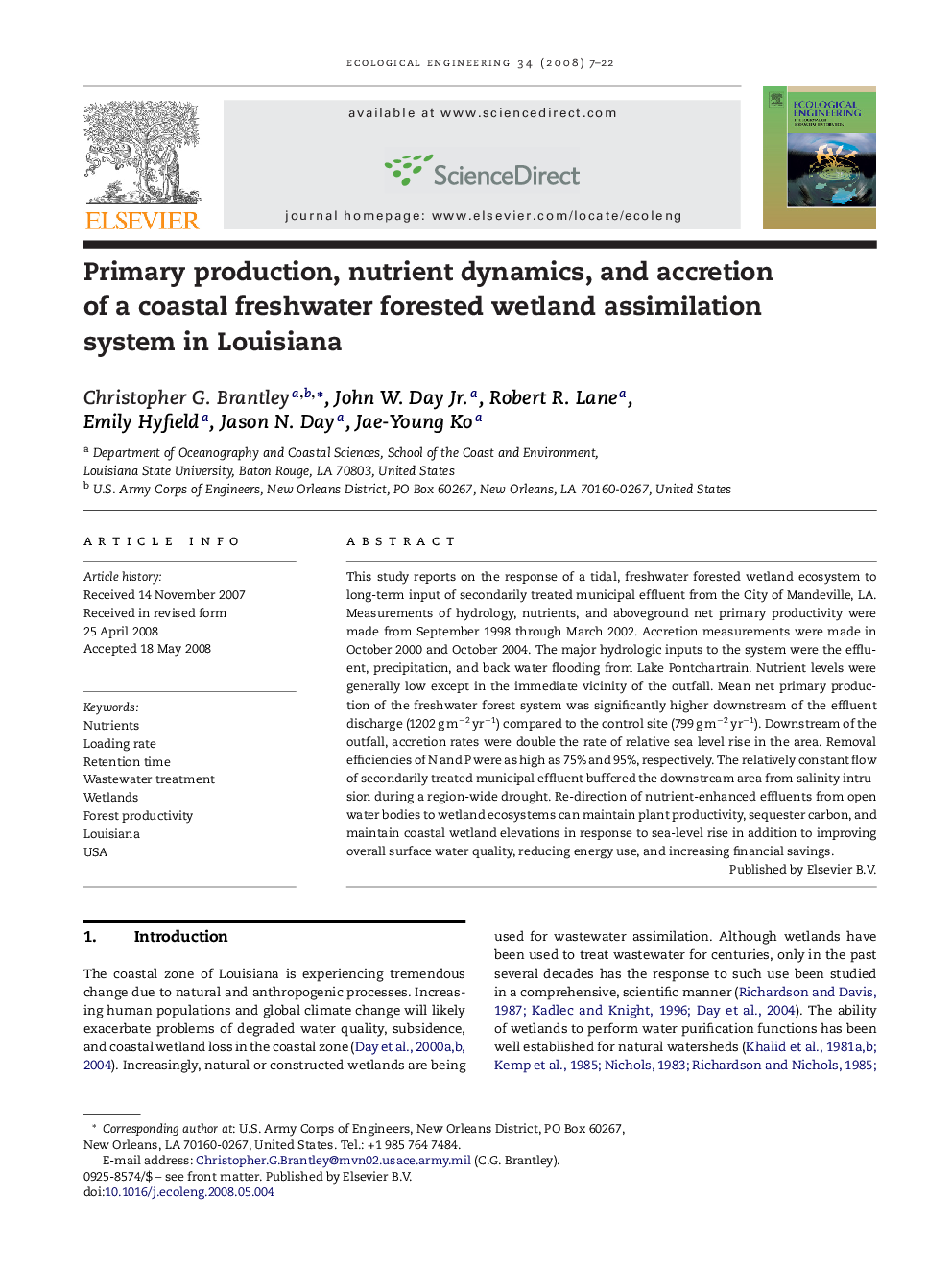| Article ID | Journal | Published Year | Pages | File Type |
|---|---|---|---|---|
| 4390675 | Ecological Engineering | 2008 | 16 Pages |
Abstract
This study reports on the response of a tidal, freshwater forested wetland ecosystem to long-term input of secondarily treated municipal effluent from the City of Mandeville, LA. Measurements of hydrology, nutrients, and aboveground net primary productivity were made from September 1998 through March 2002. Accretion measurements were made in October 2000 and October 2004. The major hydrologic inputs to the system were the effluent, precipitation, and back water flooding from Lake Pontchartrain. Nutrient levels were generally low except in the immediate vicinity of the outfall. Mean net primary production of the freshwater forest system was significantly higher downstream of the effluent discharge (1202 g mâ2 yrâ1) compared to the control site (799 g mâ2 yrâ1). Downstream of the outfall, accretion rates were double the rate of relative sea level rise in the area. Removal efficiencies of N and P were as high as 75% and 95%, respectively. The relatively constant flow of secondarily treated municipal effluent buffered the downstream area from salinity intrusion during a region-wide drought. Re-direction of nutrient-enhanced effluents from open water bodies to wetland ecosystems can maintain plant productivity, sequester carbon, and maintain coastal wetland elevations in response to sea-level rise in addition to improving overall surface water quality, reducing energy use, and increasing financial savings.
Keywords
Related Topics
Life Sciences
Agricultural and Biological Sciences
Ecology, Evolution, Behavior and Systematics
Authors
Christopher G. Brantley, John W. Jr., Robert R. Lane, Emily Hyfield, Jason N. Day, Jae-Young Ko,
